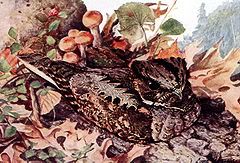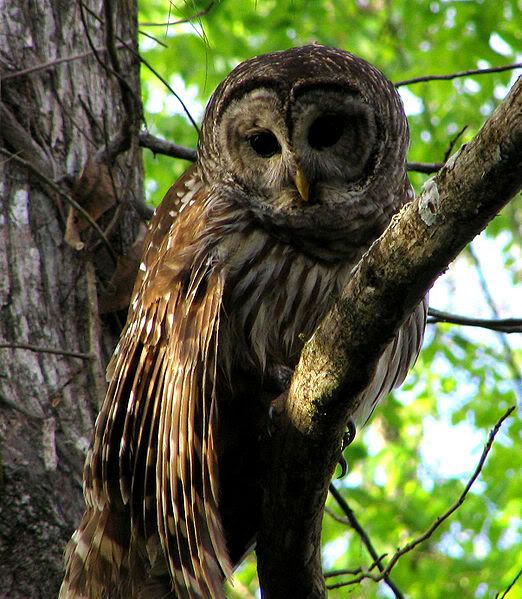(9 pm. – promoted by ek hornbeck)
Those of you that read this regular series know that I am from Hackett, Arkansas, just a mile or so from the Oklahoma border, and just about 10 miles south of the Arkansas River. It was a redneck sort of place, and just zoom onto my previous posts to understand a bit about it.
In summer in that part of Arkansas it got extremely hot from the early part of June through late September. In the early 1960s air conditioning was quite rare, at least in my part of the of the state. Thus, we slept with the windows open. We lived in an old two story house and slept upstairs.
With no air conditioning, fans were the only alternative. We had an attic fan in the house, which because they are large and slow moving, make little noise. Because of this, it was easy to hear the nighttime sounds.
Now, the attic fan was not a perfect solution because the humidity in that part of Arkansas is usually over 80% during the day and near 100% at night, and often the night air temperature would be over 80 degrees, but the airflow did help make us feel cooler. But the open windows did allow me to hear the night sounds clearly.
Although we lived in town, behind the house were open fields and one of my windows pointed in that direction, and even the one that pointed towards town picked up lots of sounds since our front yard had lots of large trees. Here are the kinds of things that I could hear at night.
The katydids came out pretty much first, at dusk, just and the cicadas were starting to become quiet. Here are what the cicadas sounded like, along with a video. Note that the sound that is making in the first video is the sound that they make during the heat of the day:
Here is their later in the day and early evening. Scroll down to Tibicen pruinosus and hit the “SONG” link. My cousin called them “zeezers” because of their sound.
After the cicadas played out just after dark, the katydids would start. The species in my area is Pterophylla camellifolia, the common true katydid. Here is a link to a picture and the song. Mine were the southeastern race, so that is the second recording.
The tree frogs also would sing up a storm. The predominant one in my area was Cope’s gray treefrog, Hyla chrysoscelis. Here is a link to pictures and its song. Just hit the loudspeaker button under “Description at the top of the page.
A little later the whippoorwills would start calling. They are largish birds that live on the ground, and if you are walking in the woods at night and step near one, you will certainly get a good adrenaline rush! They can sign for hours. Here is a link to a particularly good recording. Note that before the actual “whistle” there is a very faint “cluck”. Find the red label “B” on the map of Arkansas and click, then hit the loudspeaker button. Since they are nocturnal and highly camoflauged, they are rarely seen. Here is a picture:
 ”
”
Another sound often heard was that of the barred owl, Strix varia. These are impressive animals with a real voice, nothing like the “hoot hoot hoot” of many other owls. They also do not have “horns” like many other owls have. Here is a picture:
 ”
”
I have two good sites for their calls. The first site, here, has what I refer to as their “attraction” call for the first three audio cuts. Be sure to play all four, but I have never heard the forth one.
The second site, here, contains what I term the “alarm” call, and here is why I say this.
My father taught me how “call up” these owls, and I got quite good at it. The trick is to be very accurate at it to attract them in the first place, and not to call too often. At least a couple of minutes need to elapse betwixt calls. The reason for that is that as they get closer, they can detect minor imperfections in a human imitation to their call and will either never call back or realize that the call is incorrect. It is mistake to keep calling once they get nearby, as they call enough to attract others. Of course, as a kid I would get impatient and keep calling and mess it up, and then they all would give the alarm call and that was it for the night. I NEVER have been able to get them to come back after they have alarmed the same night.
My cousin has a funny story about barred owl calling. He was sitting out one evening and thought that he heard one far away, and called back. In a little while the owl returned the call and Mike returned the return. The next thing that he heard was a kid saying, not very quietly, “Dad! I did it! I called one up!”
Well, that is enough for now. With air conditioning and closed windows we miss these sounds of nature these days, and I believe that we are poorer for it. Of course, there were more sounds than those, but everyone has heard barking dogs, caterwauling cats, and such. One sound of the night that I always have found extremely unpleasant is the sound of that one mosquito that somehow got through the window screens!
Just one more observation: the German word for caterwauling is Katzenjammer (used in the very popular comic strip The Katzenjammer Kids from years long gone). In German, this word also translates to the English “hangover” because of the heightened sensitivity to sound that many sufferers have during a hangover, making almost everything sound like caterwauling.
Warmest regards,
Doc
Crossposted at
Docudharma, and

3 comments
Author
remembering distant memories?
Warmest regards,
Doc
It might be fun to mix all those mp3 sound samples together and make yourself an Arkansas summer sound track.
Thanks Doc.